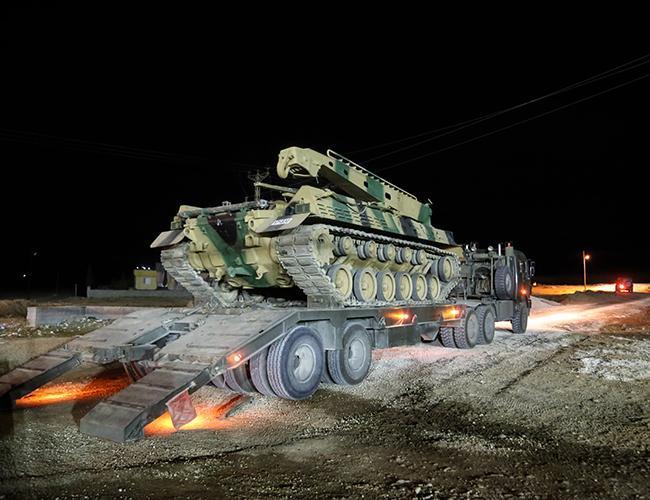
Turkish soldiers crossed the border into Syria’s largely jihadist-controlled northwestern province of Idlib on Oct. 8 to carry out reconnaissance activities in a bid to create a “de-escalation zone,” the Turkish Armed Forces stated on Oct. 9.
According to the army, reconnaissance activities have started in order to determine surveillance posts and the mission is being conducted “as per the rules of engagement” agreed upon by Turkey, Russia and Iran during the Astana process.
“In the stage that was reached, in order for the tracking of the ceasefire regime, elements of the Turkish Armed Forces within the De-escalation Control Force, which consists of the armed forces units of the guarantor countries, started reconnaissance efforts on Oct. 8 in order to determine surveillance posts,” the army statement read.
It did not specify the number of soldiers who have crossed the border.
Idlib is largely controlled by Hayat Tahrir al-Sham (HTS), spearheaded by a former al-Qaeda affiliate that changed its name last year from the Nusra Front.
On Oct. 8, Turkish forces shelled areas along the border.
President Recep Tayyip Erdoğan announced on Oct. 7 the start of the new military operation inside Syria by the Free Syrian Army (FSA) militants backed by the Turkish army.
A day later, Prime Minister Binali Yıldırım vowed that “we will ensure safety in Idlib, and will cooperate with Russia.”
The military’s statement on Oct. 9 was the first confirmation by the Turkish army of involvement inside Syria in the latest operation.
The operation is part of efforts by Turkey, along with Russia and Iran, to set up the zone in line with accords in Astana peace talks aimed at ending the Syrian war. They agreed on four such ceasefire zones in Syria as a prelude to negotiations.
HTS is not party to the deal for the safe zone in the province, one of four such “de-escalation” zones nationwide.
Ousting HTS forces from the area will be needed to allow the arrival of Iranian, Russian and Turkish forces to implement a de-escalation zone.
Three zones are already in place, in Eastern Ghouta near Damascus, in central Homs, and in parts of southern Syria, and are being monitored by Russian military police.
The operation in Idlib follows Turkey’s Euphrates Shield Operation in northern Syria, which was launched on Aug. 24, 2016, in a bid to clear the border of the Islamic State of Iraq and the Levant (ISIL) and to stop the Syrian Kurdish Democratic Union Party (PYD) from merging its Kobane and Afrin cantons.
Amid the Idlib operation, increased military activity can be observed in the Reyhanlı district of the southern border province of Hatay, with a number of armored vehicles, as well as heavy machinery, being dispatched to the area.
Private broadcaster CNN Türk reported that special forces units crossed the border into Syria in order to determine weapon-launching pits, heavy and armored vehicles, tanks and points where soldiers may come under fire.
CNN Türk also reported that the units are capable of laser targeting significant locations.
While the military deployment near the border line is ongoing, the tanks’ barrels and missile launchers are turned to the border in anticipation of any possible threat from Syria. Two tanks, one howitzer and seven missile launchers are reportedly on alert against an attack from Idlib.
Meanwhile, heavy machinery continues to work as part of infrastructure efforts for the new defense systems.